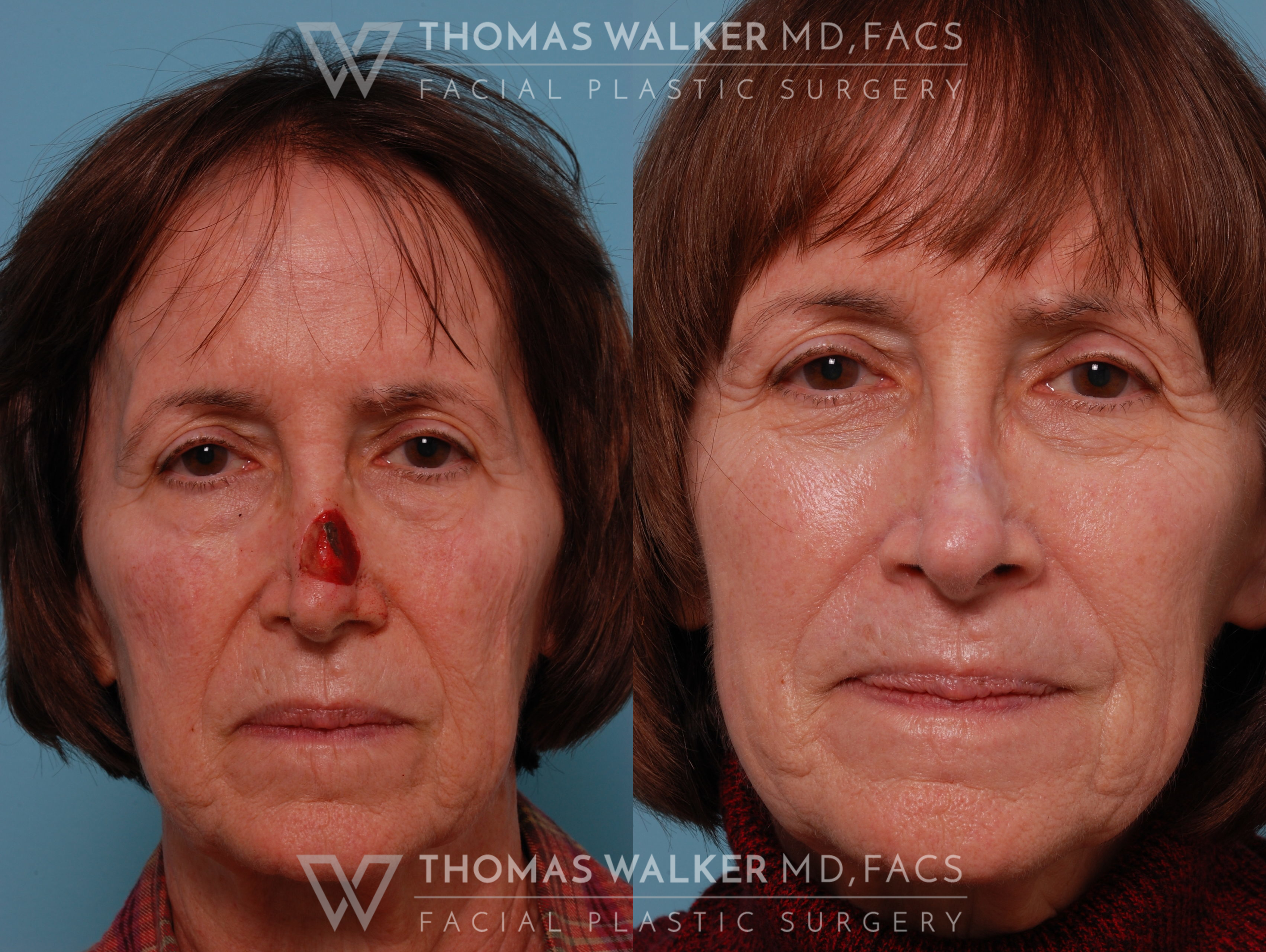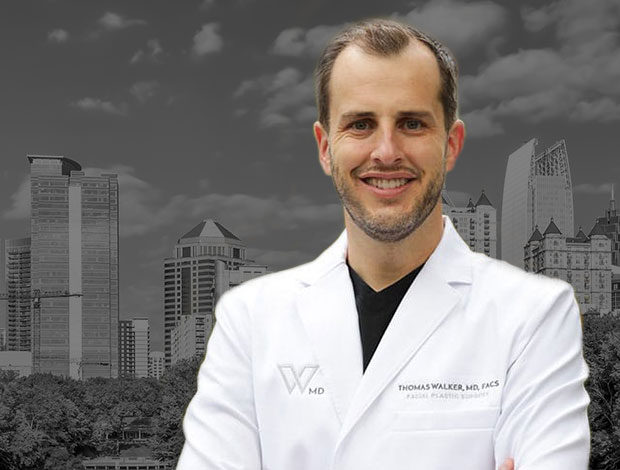
Skin Cancer
Skin cancer occurs when there is an overgrowth of abnormal cells in the skin caused by damaged DNA that causes mutations. These mutations cause skin cells to quickly multiply, resulting in malignant tumors. The main causes of skin cancer include the cumulative exposure of UV rays by being in the sun without proper protection or spending too much time on tanning. There are three main types of skin cancer, including basal cell carcinoma (BCCa), squamous cell carcinoma (SCCa), and melanoma. As a facial plastic surgeon, Dr. Walker does not diagnose skin cancer, which he defers to his dermatology colleagues, but assists in reconstructive surgeries if his assistance is of help after dermatologic treatment, particularly after Mohs surgery.
Who is a Good Candidate for Skin Cancer Removal?
Individuals who have been diagnosed with skin cancer, have reoccurring skin cancer, have skin cancer that is growing rapidly, or have skin cancer in sensitive areas such as the eyes, nose, or lips need to see their dermatologist for proper cancer treatment. Dr. Walker will speak with you during your consultation appointment to discuss your surgical reconstructive options regarding the anticipated skin cancer defect you may have after your removal. He understands that it can be nerve-wracking for you when diagnosed with skin cancer, but he will do everything to ensure that you are fully informed on your reconstructive options and make recommendations what your surgery may entail.
How is the Skin Cancer Removal Procedure Done?
There are many different ways to remove skin cancers, depending on the type, size, and location of the growth. The most common skin cancer techniques include Mohs surgery, curettage and electrodesiccation, and excisional surgery.
Mohs Surgery
Mohs surgery is performed under local anesthesia by a specialized dermatologist on an outpatient basis. It offers the highest cure rate, treating up to 99% of skin cancer that has not been treated before. The surgery is performed in multiple stages, all during one visit. A Mohs dermatologic surgeon will remove a very thin layer of tissue from the cancerous lesion and then examine it under a microscope. If he or she sees that any cancer cells are still present, the Mohs dermatologist will continue removing cancer cells until all margins are free of cancer. This technique leaves the smallest defect possible while maximizing the chance to have removed the entire cancer. This technique is very popular for sensitive areas where large defects are disadvantageous such as the lip, ear, eyelids, and nose. The wound may be left open if a small defect or reconstructed by Dr. Walker within a few days of your cancer resection. Every effort is made to coordinate your skin cancer removal Mohs surgery and reconstructive surgery such that you have a minimal amount of time pass between cancer removal and reconstruction, typically within a couple of days. At times, multiple reconstructive surgeries are needed for larger or deep defects.
Schedule Your Consultation
If you are in need of skin cancer reconstructive surgery, contact our Atlanta, GA office today and let your dermatologist and Mohs surgeon know you are interested in having the defect reconstructed by a facial plastic surgery specialist. We will schedule your initial consultation appointment with board-certified facial plastic surgeon Dr. Walker. During this appointment, Dr. Walker will discuss your skin cancer reconstructive options depending on the anticipated defect, which is at times not completely predictable. The focus is always first and foremost to have the cancer removed completely with reconstruction of the defect be a secondary goal. If you smoke or consume nicotine, this may be a good time to stop.



